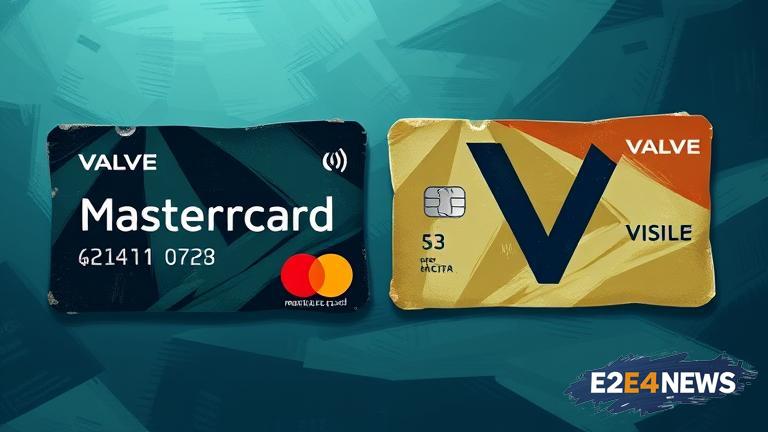The recent controversy surrounding Mastercard and Valve has sparked a heated debate over censorship and content restrictions. Mastercard, a leading payment processing company, has denied allegations of censorship, stating that they do not dictate what content is allowed on platforms. However, Valve, the company behind the popular digital distribution platform Steam, has pointed fingers at Mastercard, claiming that they are to blame for the restrictions. The issue at hand is the removal of certain adult-themed games from Steam, which has led to accusations of censorship. Mastercard has stated that they do not have the ability to dictate what content is allowed on Steam, and that the decision to remove the games was made by Valve themselves. Despite this, Valve has continued to claim that Mastercard’s policies are the reason for the removal of the games. The controversy has sparked a wider debate over the role of payment processors in regulating online content. Many have argued that payment processors like Mastercard have too much power over what content is allowed online, and that this can lead to censorship and restrictions on free speech. Others have argued that payment processors have a responsibility to ensure that the content they facilitate is not harmful or objectionable. The issue is complex, and there are valid arguments on both sides. Mastercard has stated that they are committed to supporting freedom of expression, but also have a responsibility to ensure that their services are not used for illegal or harmful activities. Valve, on the other hand, has argued that they are simply trying to comply with Mastercard’s policies, and that they do not want to be held responsible for facilitating content that may be objectionable. The controversy has also raised questions about the role of digital distribution platforms like Steam in regulating online content. Some have argued that platforms like Steam have a responsibility to ensure that the content they host is not harmful or objectionable, while others have argued that this can lead to censorship and restrictions on free speech. The issue is likely to continue to be debated in the coming weeks and months, as the online gaming community and wider society grapple with the implications of censorship and content restrictions. In the meantime, Mastercard and Valve will likely continue to point fingers at each other, each trying to shift the blame for the controversy. The controversy has also sparked a wider debate over the role of corporations in regulating online content, and the impact that this can have on free speech and freedom of expression. Many have argued that corporations like Mastercard and Valve have too much power over what content is allowed online, and that this can lead to censorship and restrictions on free speech. Others have argued that corporations have a responsibility to ensure that the content they facilitate is not harmful or objectionable. The issue is complex, and there are valid arguments on both sides. Ultimately, the controversy surrounding Mastercard and Valve is a reminder that the regulation of online content is a complex and multifaceted issue, and that there are no easy answers. As the online gaming community and wider society continue to grapple with the implications of censorship and content restrictions, it is likely that we will see more controversies like this in the future. The controversy has also raised questions about the impact of censorship on the online gaming community, and the potential consequences for game developers and publishers. Some have argued that censorship can stifle creativity and innovation, while others have argued that it is necessary to protect players from harmful or objectionable content. The issue is likely to continue to be debated in the coming weeks and months, as the online gaming community and wider society grapple with the implications of censorship and content restrictions. In the meantime, game developers and publishers will likely continue to navigate the complex and ever-changing landscape of online content regulation, trying to ensure that their games are compliant with the policies of payment processors like Mastercard and digital distribution platforms like Steam.





